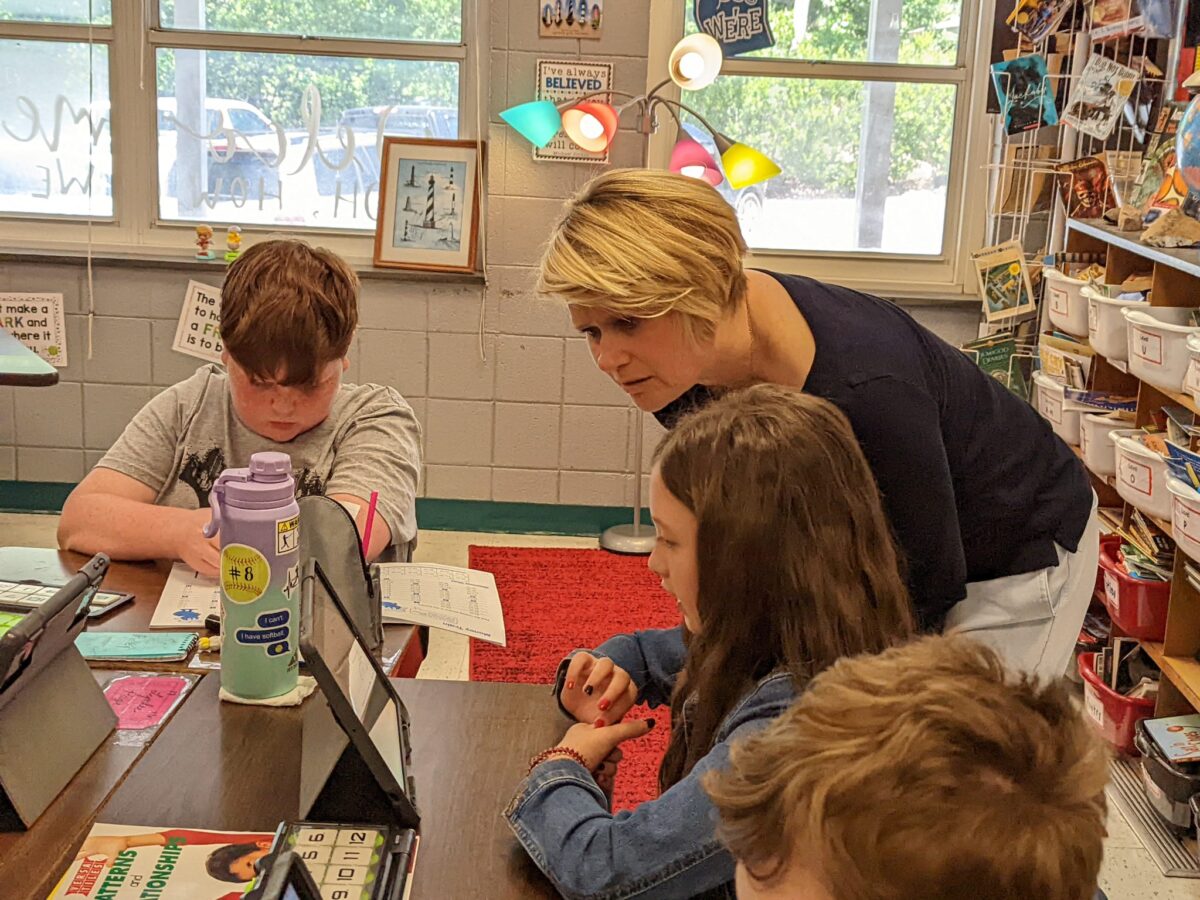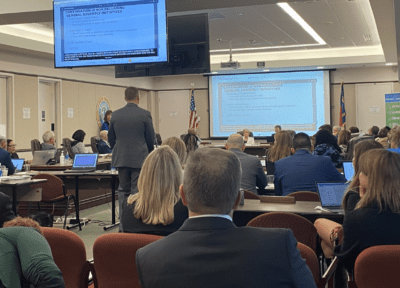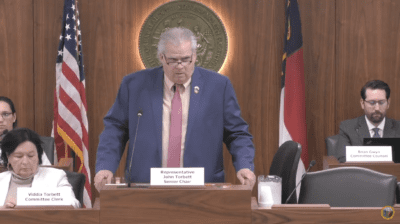
|
|
State Superintendent Catherine Truitt launched a revision to her Operation Polaris plan that outlines the progress made on her initial goals as well as what’s to come from the state Department of Public Instruction (DPI).
The document is a continuation of the efforts Truitt began in September 2021 to reach what she calls her North Star: “that every student deserves a highly qualified, excellent teacher in every classroom,” according to a press release from DPI.
“Operation Polaris continues to serve as a long-term, proactive and forward-thinking vision for education in the state and one that evolves to fit the challenges and changes facing the state’s public schools,” Truitt said in a press release. “Many initiatives outlined in the first iteration of Operation Polaris are well underway and others, such as strengthening literacy and workforce development, have been enhanced or added as our work to date has led us to new solutions.”
The press release states that the plan was developed along with the State Board of Education and General Assembly members, and covers seven areas of focus:
- Office of Learning Recovery and Acceleration
- Office of District and Regional Support
- Strengthening Literacy
- Prioritizing Student Support Services
- Redesigning Testing and Accountability
- Piloting Competency-Based Education
- Transforming the Human Capital Pipeline
The press release shouts out the office of Learning Recovery and Acceleration as Operation Polaris’ “most significant initiative,” saying that it “has shared findings and strategies to help education leaders overcome the challenges of the pandemic and accelerate student learning through the creation and development of programs, policies, and interventions.”
Additionally, the press release mentions the work done by DPI getting the science of reading into schools to bolster literacy education, and says the updated plan will have “a sharper focus on schools designated as low performing.”
Other items mentioned are the development of the Portrait of a Graduate profile, as well as DPI’s efforts to change the state’s A-F school performance grades.
“There is still much work to be done,” Truitt said in the press release, “but Operation Polaris is helping us chart a steady course to continued improvement of North Carolina’s schools and to improved outcomes for all students.”
The State Board of Education has awaited the release of Operation Polaris 2.0 so that Truitt could help them move forward the licensure and teacher pay reform plan they are working on.
Under North Carolina’s current system, teachers are paid based on their years of experience. The new proposal would introduce different levels of licensure and corresponding pay, ranging from apprentice teachers to advanced leadership roles. The Board is planning on piloting this for a minimum of two years as a proof-of-concept for a statewide rollout.
The plan would include significantly higher rates of pay for teachers, but it has met resistance from some educators who say that the plan amounts to merit pay and who worry about how their effectiveness will be measured.
A motion passed by the Board in December asks Truitt to report back in February about how Operation Polaris and the Board strategic plan align with a “blueprint” they are using to develop the pilot.
At the most recent State Board meeting, Truitt also mentioned to Board members that she would be updating them on a new school turnaround model in February. That came during a conversation about a late addition to the Board’s legislative priorities: 17 principal turnaround coaches to help 47 chronically low-performing schools that DPI is not currently able to assist.
Included in Operation Polaris 2.0 is a section on the state’s support for low-performing schools. It talks about progress in the office and lays out next steps, including that District and Regional Support at DPI will convene regularly to work on recommendations.
Those are to:
- “Redefine Regional Support Team roles, responsibilities and membership”
- “Delineate supports based on tiering of services”
- “Create a plan for communicating options for support to LEAs and schools”
District and Regional Support is also looking to add instructional support and a district liaison into its school support model.
In addition, the document says that DPI will request in the 2024 short session that lawmakers make the CARES intensive support model permanent. CARES “requires a formal partnership to identify and remedy root cause(s) as well as develop highly focused incremental action steps with performance measures and clear monitored plans for improved governance,” according to the document.
CARES was launched in the 2020-21 school year as a pilot in 81 schools. Operation Polaris 2.0 calls CARES “the highest level of intervention within NCDPI,” and says evidence shows that it can help turnaround chronically low-performing schools.
You can see the full document for Operation Polaris 2.0 here.




